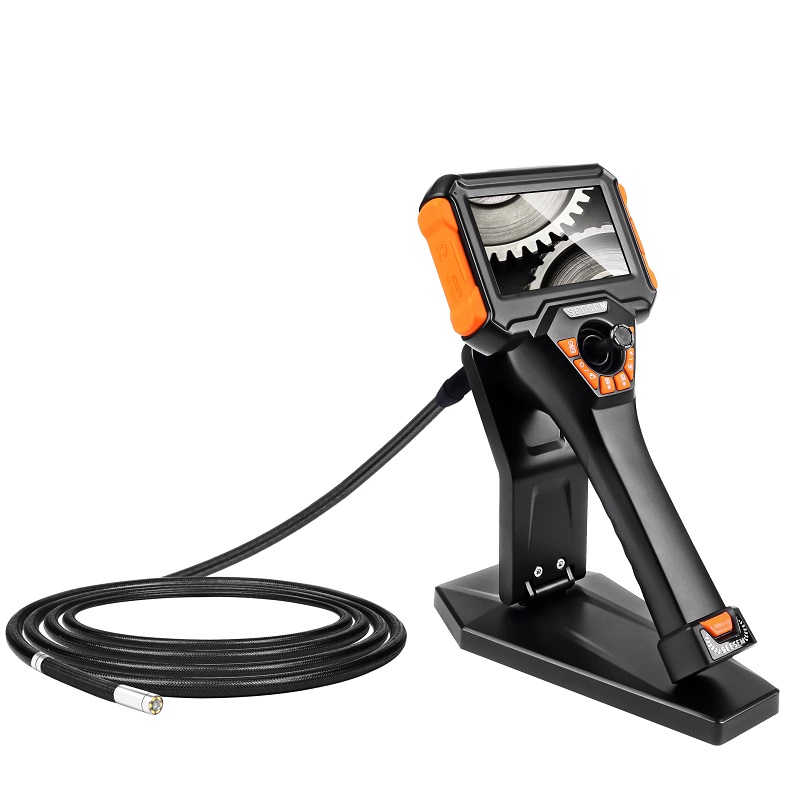Broad Applications of 産業用ビデオ鏡
In the modern industrial landscape, the utilization of advanced technologies is paramount to ensure efficiency, accuracy, and safety across various sectors. Among these technologies, industrial videoscopes stand out as versatile tools with a wide array of applications. Industrial videoscopes, equipped with flexible cameras and high-resolution imaging capabilities, have revolutionized inspection and analysis procedures in industries ranging from manufacturing and aerospace to automotive and energy. This article delves into the broad scope of applications where industrial videoscopes play a pivotal role.
Manufacturing and Quality Control: In manufacturing processes, ensuring the quality and integrity of products is a top priority. Industrial videoscopes provide a non-destructive and efficient way to inspect intricate components, welds, and assemblies. From detecting defects in critical weld joints to examining the internal structure of manufactured parts, videoscopes enhance the quality control process, reducing the risk of faulty products reaching the market.
Aerospace and Aviation: The aerospace industry demands rigorous inspection standards to guarantee the safety and reliability of aircraft components. Industrial videoscopes are employed to inspect aircraft engines, turbine blades, and other hard-to-reach areas. These tools enable engineers to identify defects, ひび割れ, and erosion in components without the need for disassembly, ultimately enhancing the overall maintenance and safety of aircraft.
Automotive Maintenance: In the automotive sector, videoscopes are utilized for engine diagnostics, examining the condition of cylinders, pistons, and valves. The ability to visualize the internal components allows mechanics to assess wear and tear, detect leaks, and make informed decisions on necessary repairs, thereby improving the efficiency of vehicle maintenance.
Energy Sector: Videoscopes find utility in the energy sector, particularly in power plants and oil refineries. By inspecting pipelines, 貯蔵タンク, and critical machinery, videoscopes aid in early detection of corrosion, 詰まり, and other issues that could lead to operational disruptions. This proactive approach to maintenance contributes to the reliability and safety of energy facilities.
Infrastructure Inspection: Industrial videoscopes are essential for inspecting infrastructure elements such as bridges, トンネル, and pipelines. They enable engineers to assess the structural integrity of these assets, identifying cracks, rust, and other defects that could compromise their safety. Regular inspections with videoscopes ensure that maintenance interventions are targeted and effective.
Medical and Research Applications: Beyond the industrial realm, videoscopes are also employed in medical procedures and scientific research. Medical videoscopes aid in minimally invasive surgeries, allowing physicians to visualize internal organs without extensive incisions. In research, videoscopes enable scientists to study intricate biological structures and phenomena in real-time, contributing to advancements in various fields.
結論は, industrial videoscopes have a far-reaching impact across diverse industries, revolutionizing inspection, analysis, and maintenance processes. From manufacturing and aerospace to automotive and beyond, these tools empower professionals to make informed decisions, enhance quality control, and ensure the safety and reliability of various products and systems. As technology continues to evolve, the applications of industrial videoscopes are likely to expand further, driving innovation and efficiency across industries.


